Linda Mira-Bateman is on a mission to advocate on behalf of animals.
Subscribe now for unlimited access.
or signup to continue reading
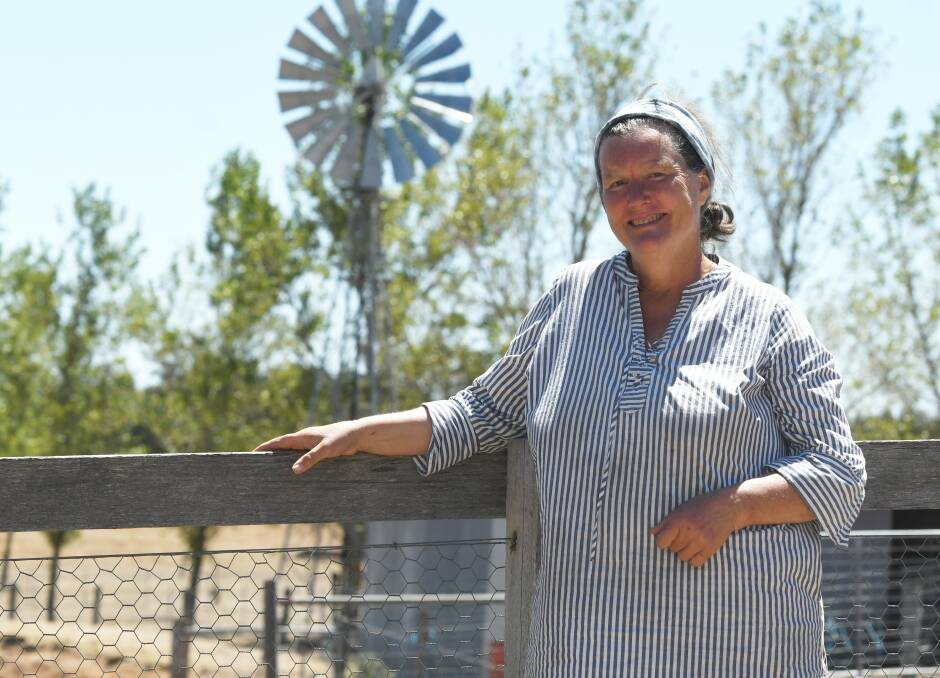
HONEY'S PLEDGE
Ms Mira-Bateman runs Honey's Pledge, a registered farm animal rescue, based in Hepburn Shire.
At the moment the rescue has more than 180 animals in its care, including 20 horses, eight cattle, 130 sheep, 13 goats, three donkeys, four alpacas and a menagerie of chickens, duck, geese, fowl and Ryan the turkey.
They all have different stories; some were abandoned, some neglected, abused, slaughter-bound and others simply homeless.
"Generally they come in because they are either abandoned or unclaimed animals. Others are orphaned or surrendered. Others we rescue from the pound," Ms Mira-Bateman said.
"We don't like to take in animals who already have carers because if you have an animal, it is your responsibility to care for it. This is an ongoing and very real issue."
Ms Mira-Bateman takes animals into her care, rehabilitates them and for some, tries to find them a forever home. Many live out the rest of their natural lives on her property.
"Re-homing farm animals is really challenging. Especially in times like these where it is really dry," she said.
SPREADING THE MESSAGE
Ms Mira-Bateman funds a lot of the expenses of running the rescue through an Air Bnb, Moorakyle Retreat.
"We had always planned on having an accommodation here and I was told by people it wouldn't work if we didn't offer meat," she said.
"I don't market it as vegan accommodation - it is accommodation on land, with lots of animals you can interact with and one of our house rules is that we do not allow meat or meat products. It's no different to saying we don't allow house parties or we don't allow smoking."
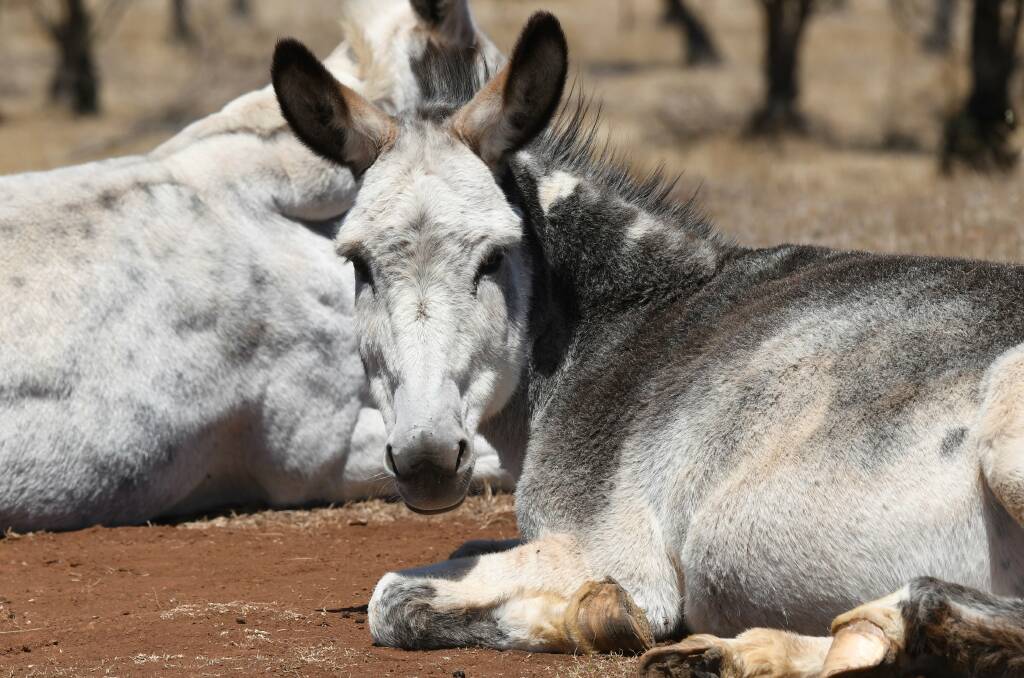
She said she did not find that people came to the property solely for its being plant-based, as she hosted a mixture of strictly plant-based eaters and others who stay to experience the region or because they are animal-lovers.
"Often people are a bit thrown when they find out I run a farm animal rescue because they expect an animal rescue to be for wildlife or cats and dogs," she said.
"But one of the things I do is encourage guests to interact with the animals so they can see them in a different light. Usually the sheep are laying in the driveway - they're not shut off in paddocks. They have a pretty free range around the place so there is plenty of opportunity."
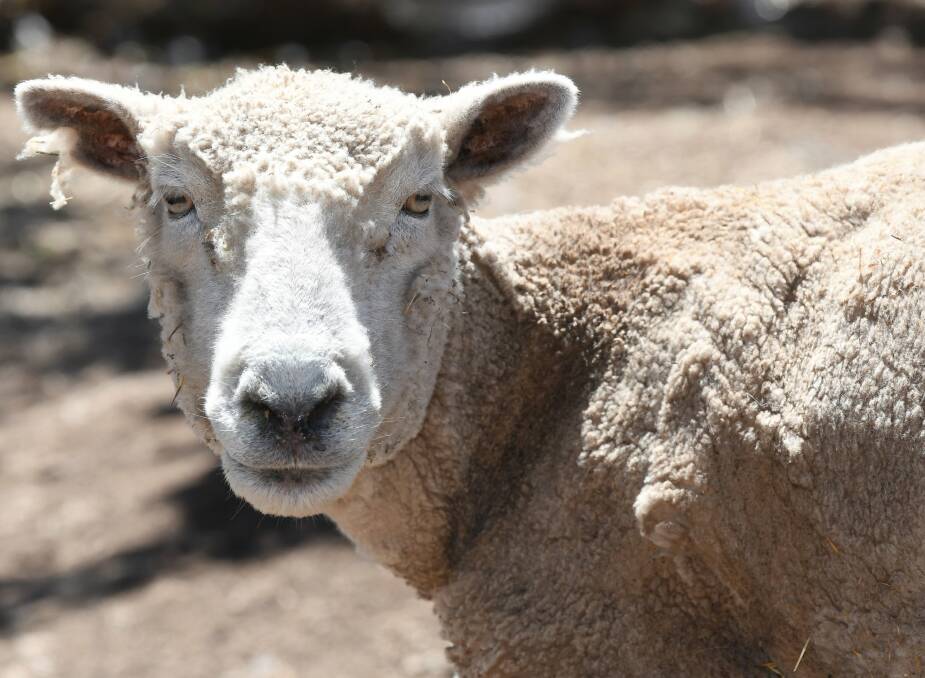
ANIMAL WELFARE
One of the things which is striking about the property is the number of older animals.
"You see so many photos of cute, young animals but the reality is most sheep and cattle don't get to live out their lifespan. People here get to see older cattle and sheep that normally they would not meet because a farmed animal doesn't get the chance to live to old age."
Trudy the sheep is 13-years-old and has been living with Ms Mira-Bateman since she was found with a broken leg on the side of the road near Mollongghip. She follows guests around because she loves to interact with them.
Paul the ram is another example. He came off a truck at Glenlyon when he was 12, on the way to the abattoir, after a long life as a stud ram. He died late last year at 14-years-old.
"He was so beautiful. He was so old but he was good-natured and would share his feed with the lambs and lay next to them."
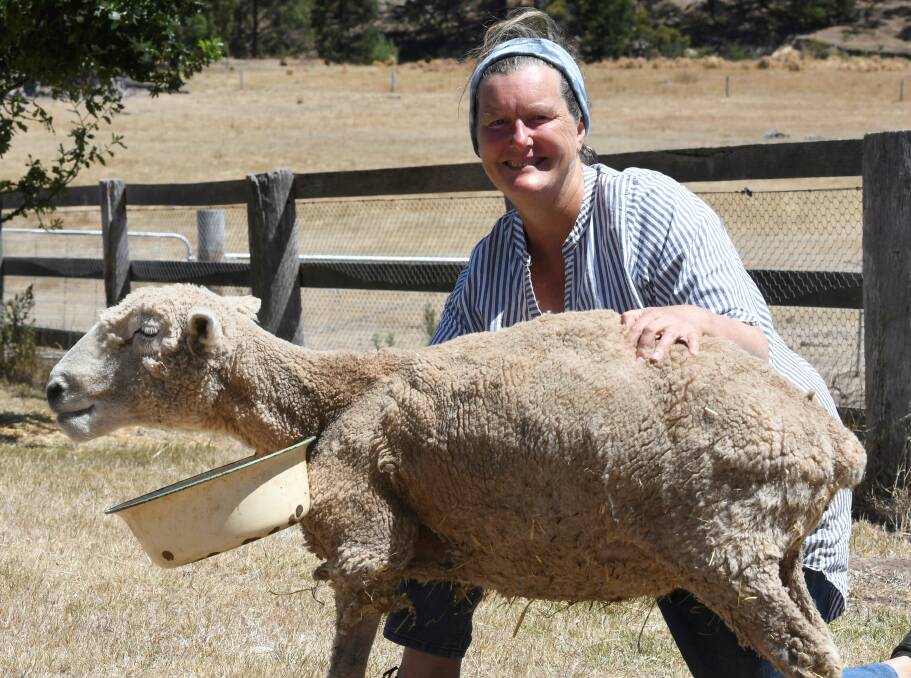
PLANT-BASED EATING
Australia is one of the fastest growing countries for plant-based diets, with major supermarkets and food retailers jumping on the bandwagon.
Reasons for a plant-based diet vary.
Some follow a plant-based lifestyle for ethical reasons, others harbour concerns around animal welfare and factory farming, while others choose to be plant-based for health or environmental reasons, like cutting red meat to combat climate change.
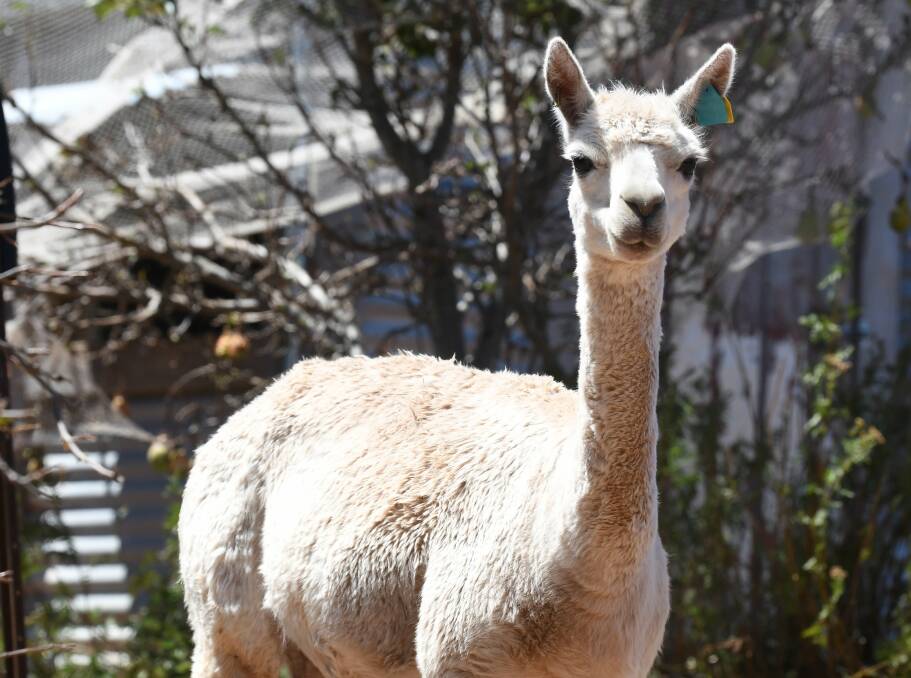
For most people, becoming plant-based is a journey.
"I hope that by being here, I can be a link for people to think about why it is important to think more about animals. For example chickens are still killed at the end of their laying lives on free-range farms," Ms Mira-Bateman said.
"Nobody is perfect - Im not perfect, nobody is perfect. I just try to do things that cause less harm."
ANIMAL SENTIENCE
In 2015, New Zealand legally recognised animals as sentient beings through its Animal Welfare Amendment Bill.
This means that animals, like humans, are able to feel both positive and negative emotions and are able to feel pain.
The bill was a step forward in the journey to animal welfare as it means animals are no longer seen as objects in the eyes of the law, making it easier to prosecute cases of animal cruelty or neglect.
Through the bill, animal testing was also made illegal for cosmetics produced in the country.
Other nations, including Canada, France and the Netherlands also have similar bills, with the Australian Capital Territory currently moving to legislate one.
The bill will be the first to be legislated in Australia.
Honey's Pledge does not take volunteers but does accept donations, which are tax deductible. To donate and assist with veterinary fees, feed, and equipment costs visit https://honeyspledge.org

